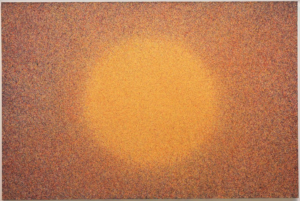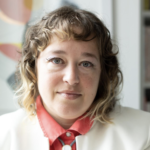Context and Goals
The AEDP Institute recognizes the emerging interest in psychedelic-assisted psychotherapy. There exists, among many practitioners, an appetite for training around the safe and legal incorporation of psychedelic substances into their healing practices.
AEDP is a boldly relational, radically transformational model all on its own, and it will always be committed to transforming suffering and promoting flourishing with or without the assistance of psychedelics.
While our plans are still emergent, at this early stage it is the Institute’s goal to nurture an extension of AEDP where interested and trained clinicians can unleash the potential of psychedelics to contribute to longstanding AEDP therapeutic aims including: bypassing defenses, facilitating trauma processing and deepening transformational potential.
We hold in the highest esteem the indigenous practices of psychedelic medicines in both historical and present contexts. The Institute acknowledges that the experience of these medicines in conjunction with AEDP is its own category of use. Any research discoveries or implementation of practices around psychedelics are meant to stand in parallel to established traditions, not to disrupt or diminish sacred practices.
Psychedelic-assisted AEDP psychotherapy has tremendous healing possibilities. AEDP is in fact uniquely suited to support the transformational healing powers of psychedelics.
Every aspect of the AEDP Institute’s engagement with this exciting extension of AEDP therapy is being explored with rigor and care.
The AEDP Institute Committee on Psychedelic Assisted Therapy has been actively putting together spaces for discussion and programs to train and supervise AEDP clinicians in whatever can be legally trained, and discussed. When more of these substances are legal we aim to be ready to provide AEDP practices with even more tailored training and supervision.
Sincerely and with excitement,
The AEDP Institute Committee on Psychedelic Assisted Psychotherapy
Meet us below! and contact us at psychedelic-work@aedpinstitute.org
Psychedelic Assisted Psychotherapy-Related Activities: Coming soon, and Recently Completed
stay tuned – more activities are being added all the time
September 13 – 15, 2024: “Explore AEDP-Informed Psilocybin Assisted Therapy – Experientially!” Presented In-Person at Immersive Therapies in Portland, Oregon by AEDP in Portland’s Emily Bilbao, LSCW & Deb Lee-Thornby, LMFT and by Liz Perkins, LMFT
January 30 – May 7, 2024: “Psychedelic Assisted Therapy: Preparation, Integration, and everything in between in the context of AEDP” Online Seminar Series presented by AEDP Certified Therapist Emily Bilbao, LCSW
December 8, 2023: “How to Integrate AEDP with Psychedelic Assisted Psychotherapy (primarily ketamine)” Online, Institute-sponsored seminar presented by AEDP Certified Therapist Mark Green, MD
October 28, 2023: “Ayahuasca as True Other” Online Institute-sponsored seminar presented by Meris Williams, PhD, RPsych and guest presenters.
September 10, 2023: “Psychedelics 101” Online, Institute-sponsored seminar presented by AEDP Certified Therapist Emily Bilbao, LCSW (On Demand version coming soon)
June 30, 2023: Community listening session (attended by over 150 community members!)
June 23, 2023: “TRANSFORMATIONAL SYNERGIES: Together, MDMA and AEDP™ psychotherapy
accelerate the healing of attachment trauma” presented at MAPS conference in Denver, CO, USA by Sr. Faculty Member Kari Gleiser, PhD. (Presentation slides, here)
plus MAPS conference-adjacent community meetup on June 22
May 7 2023: Intro Letter to AEDP Community and Community Survey (see results here)
Meet the AEDP Psychedelic Assisted Psychotherapy Project Committee – and an invitation to connect!
If you are fairly advanced in your AEDP training and also fairly advanced in your experiences related to psychedelics, and you are interested in participating with our committee in some way, please let us know by contacting us at psychedelics-work@aedpinstitute.org.
Committee Co-chair, Certified Therapist Emily Bilbao, LCSW
Committee Co-chair, Certified Supervisor Elizabeth Perkins, LMFT
Committee Member, Institute Administration Team Leader Monica Hodges
Committee Advisor, Institute Founder and Director Diana Fosha, PhD
Committee Advisor, Senior Faculty Member Kari Gleiser, PhD
Committee Advisor, Senior Faculty Member Kate Halliday, LCSW
Emily Bilbao, LCSW, Committee Co-Chair
Emily Bilbao, LCSW (she/her) is a Licensed Clinical Social Worker and Psychotherapist in private practice in Portland Oregon. She received her Masters from Smith School for Social work in 2005. She is a Certified AEDP therapist, an AEDP Supervisor in training, a 16 session AEDP Research Therapist, and a founding member of the AEDP & Psychedelics Committee. She is a Certified Psilocybin Assisted Therapy provider in Oregon and has been trained by MAPS in anticipation of developing an AEDP MDMA protocol. In her private practice she sees individual adults & adolescents as well as couples. She works extensively with the Queer community. She has a particular current interest in exploring the synergies between Psychedelics & AEDP.
Elizabeth Perkins, LMFT, Committee Co-Chair
Elizabeth Perkins, LMFT (she/her) is in private practice in San Diego, California. Liz is a Certified AEDP Therapist and Certified AEDP Supervisor. She specializes in Complex PTSD, chronic Depression and Psychedelic integration. Liz thrives on fine-tuning her skills in her own individual supervision and while supervising others. Liz feels that AEDP has been responsible for her most memorable and meaningful breakthrough moments in sessions. When supervising others, she loves supporting the therapist in finding their AEDP style within the theory. She is also passionate about investigating all paths to transformational healing and has been avidly researching the intersections and parallels of AEDP & psychedelic-assisted therapy. She is MAPS trained, a member of the AEDP & MDMA Research Committee, and a founding member of the AEDP & Psychedelics Committee. In addition, she has trained in Holotropic breathwork and TRE.
Monica Hodges, MBA, Committee Member
Monica Hodges (she/her) has been Lead Administrator of the AEDP Institute since 2016. Her role is to work side by side with Institute Founder and Director Diana Fosha and the Institute’s wonderful administration team to bring the mission of AEDP Institute to life and to help it grow in a way that is ethos-syntonic and culturally and financially sustainable. She brings a wealth of experience in all aspects of business management, and has especially loved helping smaller organizations navigate the challenges of growing
Recommended Resources
The AEDP Institute Committee on Psychedelic Assisted Psychotherapy has put together the following list of resources to help interested people learn more about this rapidly changing and growing area of research and clinical work. To recommend a resource, contact us at psychedelic-work@aedpinstitute.org.
Articles:
Griffiths RR, Johnson MW, Richards WA, Richards BD, McCann U, Jesse R. Psilocybin occasioned mystical-type experiences: immediate and persisting dose-related effects. Psychopharmacology (Berl). 2011 Dec;218(4):649-65. doi: 10.1007/s00213-011-2358-5. Epub 2011 Jun 15. PMID: 21674151; PMCID: PMC3308357.
Vollenweider, F., Kometer, M. The neurobiology of psychedelic drugs: implications for the treatment of mood disorders. Nat Rev Neurosci 11, 642–651 (2010). https://doi.org/10.1038/nrn2884
Gorman I, Belser AB, Jerome L, Hennigan C, Shechet B, Hamilton S, Yazar-Klosinski B, Emerson A, Feduccia AA. Posttraumatic Growth After MDMA-Assisted Psychotherapy for Posttraumatic Stress Disorder. J Trauma Stress. 2020 Apr;33(2):161-170. doi: 10.1002/jts.22479. Epub 2020 Feb PMID: 32073177; PMCID: PMC7216948.
Davis AK, Xin Y, Sepeda ND, Garcia-Romeu A, Williams MT. Increases in Psychological Flexibility Mediate Relationship Between Acute Psychedelic Effects and Decreases in Racial Trauma Symptoms Among People of Color. Chronic Stress (Thousand Oaks). 2021 Aug 3;5:24705470211035607. doi: 10.1177/24705470211035607. PMID: 34377878; PMCID: PMC8342866.
Nardou, R., Sawyer, E., Song, Y.J. et al. Psychedelics reopen the social reward learning critical period. Nature 618, 790–798 (2023). https://doi.org/10.1038/s41586-023-06204-3
Books and Podcasts:
*Are Psychedelics an Answer with Dr. Hillary McBride. (Episode 240 of podcast: We Can Do Hard Things with Glennon Doyle)
*DMT: The Spirit Molecule: A Doctor’s Revolutionary Research into the Biology of Near-Death and Mystical Experiences by Rick Strassman (Author)
*Drug Use For Grownups by Dr. Carl L. Hart (available as audio book here)
*Handbook of Medical Hallucinogens 1st Edition by Charles S. Grob (Editor), Jim Grigsby (Editor)
*Holotropic Breathwork: A New Approach to Self-Exploration and Therapy Unabridged
Stanislav Grof (Author), Christina Grof (Author), Jack Kornfield – foreword (Author), & 2 more
*I Feel Love: MDMA and the Quest for Connection in a Fractured World 2023
by Rachel Nuwer (Author)
*The Ketamine Papers: Science, Therapy, and Transformation 2016 by Phil Wolfson M.D. (Author), Glenn Hartelius Ph.D. (Author)
*LSD My Problem Child (4th Edition): Reflections on Sacred Drugs, Mysticism and
Science by Albert Hofmann PhD (Author)
*PIHKAL: A Chemical Love Story 1990 by Alexander Shulgin (Author), Ann Shulgin (Author)
*The Psychedelic Explorer’s Guide: Safe, Therapeutic, and Sacred Journeys 2011 by James Fadiman (Author)
*The Theradelic Approach: Psychedelic Therapy. Perspective, Preparation, and Practice 2023 by Sunny Strasburg LMFT (Author), Richard Schwartz P.hD. (Foreword)
*The Toad and the Jaguar: A Field Report of Underground Research on a Visionary Medicine Bufo alvarius and 5-methoxy-dimethyltryptamine by Ralph Metzner , Stanislav Grof MD, et al.
*Trust Surrender Receive: How MDMA Can Release Us From Trauma and PTSD by Anne Other (Author)
Websites:
www.maps.org
https://grof-legacy-training.com/
https://www.spiritpharmacist.com/
www.dancesafe.org (drug testing kits)
https://www.atableofourown.org/
https://chacruna.net/racial-equity-and-access-committee
https://chacruna.net/woman-gender-diversity-and-sexual-minorities-working-group





